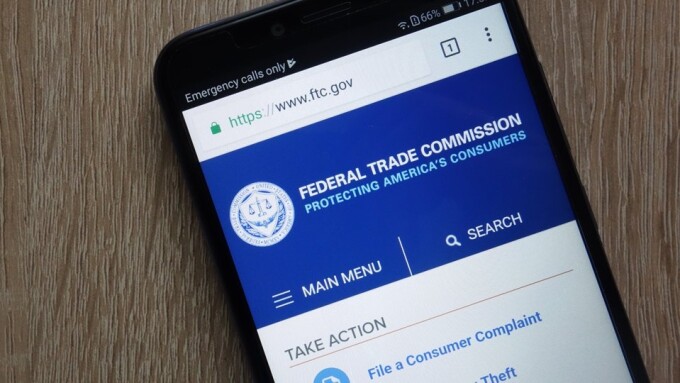SAN DIEGO — A federal court has granted the FTC’s request to stop a group of internet marketers from deceptively advertising free trial offers and not only charging consumers full price for the trial product but also enrolling them in expensive, ongoing continuity plans without their knowledge or consent.
The court order announced earlier this month temporarily halts the operation, freezes its assets, and appoints a temporary receiver over the business.
The defendants named in the FTC’s complaint are Triangle Media Corp., Jasper Rain Marketing LLC, Hardwire Interactive Inc. and Brian Phillips, who the FTC alleges owns and operates Triangle Media Corp.
The complaint charges the defendants with violating the FTC Act, the Restore Online Shoppers’ Confidence Act and the Electronic Fund Transfer Act, as well as its implementing Regulation E.
The FTC said that defendants market and sell a variety of products online, including skin creams, electronic cigarettes and dietary supplements.
Advertising through third-party websites, blog posts and surveys, the defendants were said to offer consumers “risk free” trials of products. Once enrolled, the consumers received recurring shipments of products in a negative-option continuity plan without their consent.
The FTC said that the defendants then made it difficult to cancel the continuity plan, stop or avoid the recurring charges, or obtain a refund.
Industry attorney Corey Silverstein told XBIZ today that with the court order the FTC has sent another reminder to the online commerce world that it is has no intention of slowing down enforcement actions against business operators that it believes are engaging in unfair or deceptive acts of practices.
“Notably in this case, the factual allegations included that the defendants were using tactics such as the offer of free trials — that weren’t really free trials — and negative-option plans to ‘trick’ consumers into making initial and recurring purchases,” said Silverstein of Silverstein Legal.
“Incredibly, no matter how many times the FTC successfully brings enforcement actions for similar alleged conduct, businesses’ continue to ignore how they can legally promote their product or service,” he said.
“Business operators who believe that they are shielded from FTC enforcement actions by business entities should take note that once again, the FTC did not just go after corporate defendants, but they included the individual that the FTC alleges owns and operates the named corporate defendant. Historically, the FTC has been quite successful at holding individuals, personally liable.
“Far too many online businesses — including adult subscription websites — are failing to take the time to really understand what conduct is considered permitted or unlawful by the FTC and fail to realize just how much “muscle” the FTC has.
Silverstein said that this case should once again be used as a reminder to the online commerce world of what can happen when someone lacks an understanding of the law or chooses to ignore it.
“Taking the position that since another person or business is engaging in certain conduct that it must be alright to emulate the same or similar behavior is a terrible rule to follow and is a guaranteed recipe for disaster,” Silverstein said. “Take the time to have your products, services and promotional mechanisms reviewed by counsel who is experienced in this area of the law.”







